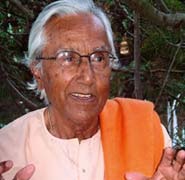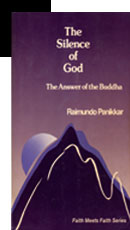

site officiel


The Silence of God
The Answer of the Buddha
The journey of reading and study offered by The Silence of God starts with a number of preambles (prefaces and introduction) that reveal the long itinerary this text has travelled before reaching its current form. Developing from an article written four decades ago, “Buddhismo e Ateismo”, it became a book in the first Spanish edition (1970) and was progressively transformed and enriched, even changing its title, in its editions in Italian (1985), English (1989) and German (1992), reaching in 2006 its final version in italian. This long and uninterrupted effort of revision of the text, which can be found in other works by the author (probably in those he is most keen on), is due to a double concern: to progressive clarify his personal relationship with the subject, from a spiritual, cultural and experiential perspective, and to bring forth an increasingly precise delivery of the topics covered, while respecting their autonomy and placing them in a fertile interaction. The initial purpose (“to be faithful to Buddhist intuitions, Christian experience, and the contemporary cultural world”, p. xiii) required this methodology of progressive fine-tuning, to avoid the risk of undue conflations and hasty conclusions. The result is a book that presents the fundamental elements of the Buddhist view and experience in a rigorous and exhaustive way, while dealing in a scrupulous and intellectually honest way with one of the most relevant issues for our contemporary sensibility: religious atheism.
The book has three independent and interrelated parts, each covered in an autonomous and complete manner —to the extent that they could stand by themselves— and yet coalescing in a complementary and integral way. The first part, “The Problem”, reviews a number of points of view with which the West has been approaching Buddhism, classifying it as a form of cynicism, nihilism, agnosticism, pragmatism, atheism… —that is, all major categories of Western thought, hardly fitting a “religious” phenomenon like Buddhism, which clearly has a universal value but undeniably uses “Eastern” hermeneutical tools. Or, rather, necessarily uses these tools in order to transcend them, as the author emphasizes when dealing with apophaticism, a key topic for the purpose of the whole book: “The ultimate reason for the Buddha’s silence seems to me to be rooted neither in the inherent limitation of the human subject, nor in the imperfection of our cognition, nor in the mysterious, recondite nature of reality. Instead, it seems to me that the ultimate reason for the silence of the Buddha resides precisely in the fact that this ultimate reality is not”. To present the Buddhist view the author goes to the original texts and to the setting into motion of the Wheel of Dharma —the start of the Buddhist adventure in human history, as presented in the Dammachakkapavattanasutta.
All of the second part, “The Texts”, is devoted to quoting and commenting original texts translated by the author, some of them already well-known and others hardly known in the West. These texts relate to four points regarded by the author as cornerstones of what is specifically Buddhist: the ontological non-substantiality or non-hipostatization of any ultimate principle of identity (âtman), nirvâna, codependent arising (pratîtyasamutpâda), and the silence of the Buddha on metaphysical questions (avyâkrtavastûni), foreshadowing the subsequent development of the characteristic Mâdhayamaka Buddhist logic, which is not based on the principle of non-contradiction: “The profound reason for this seems to me to reside not in some misapprehension of the laws of logic on the part of Buddhism, but in the denial of a one-to-one correspondence between thinking and being”.
The third part, by far the longest one, “Interpretation”, is concerned with the potential significance of Buddhism in order to address the most urgent issues of our contemporary sensibility and consciousness. We are in a global crisis that no religion or worldview can address in isolation, and from this follows the conclusion that it is possible, indeed necessary, for every religion to develop and deepen its own charisma not as a claim to exclusive superiority, but as a unique contribution to an existential and spiritual predicament that involves the whole of the human race and its destiny. This is a key topic for the author, and in this book it leads to the analysis of two typical tenets of Buddhism: religious atheism and silence as expressive methodology. Religious atheism is not a mere counterpoint to all the more or less surreptitious forms of theism, nor the statement of the nonexistence of God. It is, at least in the case of Buddhism, a subtle form of religiosity, purified from any trace of idolatry and very close to the intellectual sensibility that is described as postmodern. Silence is not the elimination of sound and the word, but the condition for listening and the origin and destiny of the word itself. The book concludes with an analysis of several aspects of silence, an analysis that could stand as a text in itself.
A rich and precious bibliography and the many notes and references give this book a high place among the works devoted to the rigorous popularization of Buddhism.
translation from Italian
